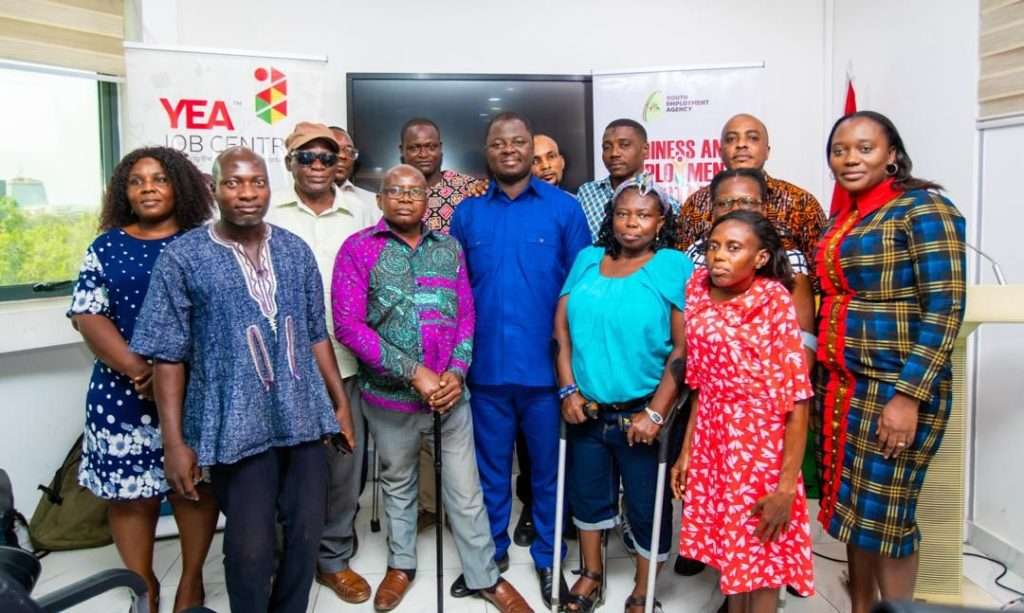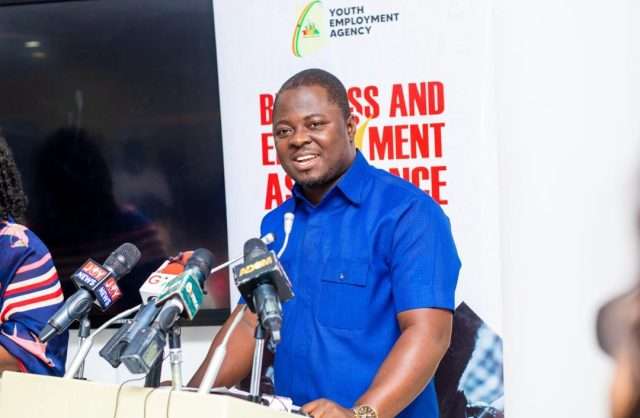The Youth Employment Agency (YEA) has initiated a groundbreaking employment drive targeting 282 former tollbooth workers, mainly persons with disabilities (PWDs) who lost their jobs as a result of the suspension of road toll collection in Ghana.
This move comes as part of YEA’s broader commitment to fostering inclusivity and empowerment within the workforce.
Speaking at a news conference held at the agency’s head office in Accra on Thursday, Kofi Agyepong, CEO of YEA, underscored the pivotal role of the agency in providing employment opportunities for Ghanaian youth amidst economic uncertainties.
He highlighted the unique challenges faced by former tollbooth workers following the government’s decision to suspend road toll collection, leaving hundreds of individuals without employment.
“While this decision elicited widespread enthusiasm, we must acknowledge its consequential impact on a segment of our society that found itself in a precarious situation. Specifically, over 200 Persons with Disabilities (PWDs) experienced a loss of livelihood as a direct result of this policy shift. These individuals, previously employed as breadwinners for their families, were now faced with unemployment and its accompanying hardships,” he said.
Recognising the need for proactive intervention, YEA embarked on a comprehensive recruitment drive in collaboration with government ministries and advocacy organisations. The result of this initiative saw 282 former tollbooth workers successfully employed as staff members of YEA.

“Rather than lamenting the circumstances, we viewed this as an opportunity to demonstrate our commitment to effecting positive change,” he said.
These individuals have been strategically placed in roles such as Regional Disability Desk Officers and District Disability Desk Officers, spanning all regions and 266 operational districts of the agency.
“This brings me immense joy,” Agyepong said, adding that: “This employment affords them not only a sense of pride and financial stability but also positions of influence where they can contribute meaningfully to policy formulation and implementation concerning disability rights.”
In addition to addressing the immediate needs of former tollbooth workers, YEA has developed alternative pathways through impactful programmes such as the Business and Employment Assistance Programme (BEAP), Youth in Skills training, and the garment and textile training initiative under the Garment and Textile module, ensuring equitable opportunities for all individuals.
According to him, the agency ensured the welfare and social security of its newly employed PWDs, guaranteeing them equitable treatment and access to the same benefits enjoyed by other government employees.
He expressed profound gratitude to all partners and collaborators including the Ministry of Employment and Labour Relations, Ministry of Roads and Transport, Ghana Federation of Disability Organisations (GFD), and the Centre for Employment of Persons with Disabilities (CEPD) who contributed to the success of this initiative, reaffirming the YEA’s unwavering commitment to championing the rights and dignity of persons with disabilities in Ghana.







































